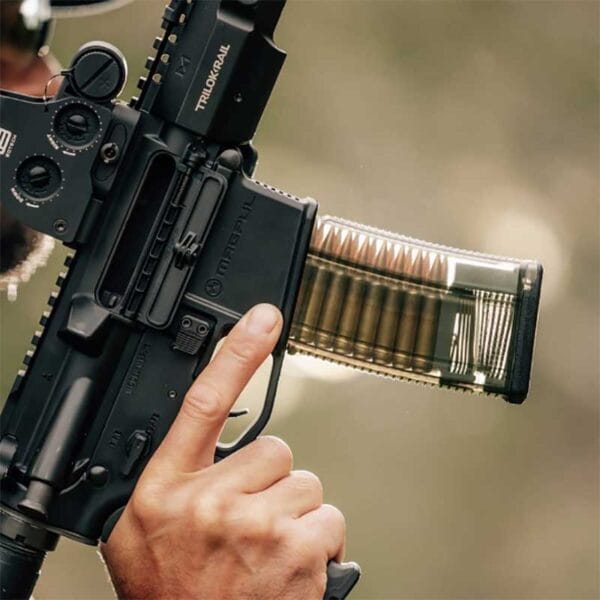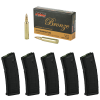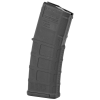
A federal appeals court in Washington, D.C., has upheld the city’s ban on firearm magazines that hold more than ten rounds of ammunition. The decision came on Tuesday from a divided three-judge panel in the case Hanson v. District of Columbia, marking a significant moment in the ongoing debate over Second Amendment rights.
The Ruling
The majority opinion was delivered by Judges Patricia Millett and Douglas Ginsburg. They acknowledged that magazines capable of holding more than ten rounds are indeed “arms” protected by the Second Amendment and are commonly used for lawful purposes like self-defense. However, they concluded that the District’s ban is consistent with historical regulations targeting weapons deemed particularly dangerous or associated with mass violence.
“Although these laws may target different crimes than does the magazine cap, they share the same basic purpose: to inhibit then unprecedentedly lethal criminal activity by restricting or banning weapons that are particularly susceptible to, and were widely used for, multiple homicides and mass injuries,” the judges wrote (page 24).
A Strong Dissent
Judge Justin Walker sharply disagreed with the majority. In his dissent, he argued that the government’s ban on magazines in common use for lawful purposes violates the Second Amendment.
“Magazines holding more than ten rounds of ammunition are arms in common use for lawful purposes. Therefore, the government cannot ban them,” he stated plainly.
Walker emphasized that, according to the Supreme Court’s decision in District of Columbia v. Heller (2008), any complete prohibition of arms commonly used for lawful purposes is unconstitutional.
Background of the Case
The challenge arose after the Supreme Court’s 2022 decision in New York State Rifle & Pistol Association v. Bruen, which set a new standard for evaluating gun regulations based on historical traditions. Seeing an opportunity, D.C. gun owners renewed their challenge against the city’s magazine ban, originally enacted in 2008 following the Heller decision.
The plaintiffs argue that standard-capacity magazines exceeding ten rounds are essential for self-defense and are widely owned by law-abiding citizens. They contend that there is no historical precedent for such a ban, pointing out that firearms capable of holding more than ten rounds have existed since the founding of the nation.
Live Inventory Price Checker
 |
Magpul PMAG GEN 2 MOE AR-15 30 Round Magazine (5 Pack) & 100 Rounds of PMC Bronze .223 Remington FMJ 55gr Ammo | The Mag Shack | $ 126.25 $ 89.99 | |
| Magpul PMAG 30 Round Magazine AK/AKM MOE 7.62x39 Black - MAG572 | Palmetto State Armory | $ 21.99 $ 15.99 | ||
 |
Magpul PMAG 30 Round Magazine AK/AKM MOE 7.62x39 Black - MAG572 | Palmetto State Armory | $ 21.99 $ 15.99 | |
 |
Case of 100 Magpul PMAG GEN M3 AR-15 .223 / 5.56 30-Round Magazine | GunMag Warehouse | $ 1198.99 |
What’s Next?
This ruling while a setback for gun rights advocates who have long sought to overturn restrictive gun laws in the nation’s capital. However, the divided opinion and strong dissent increase the likelihood that the case may be taken up by the Supreme Court.
Legal experts suggest that if the High Court decides to hear the case, it could have far-reaching implications for gun laws nationwide, particularly those involving magazine capacity limits and so-called “assault weapon” bans.
Implications for Gun Owners
For now, D.C. residents must adhere to the ten-round magazine limit. Gun owners are watching closely, hopeful that higher courts will ultimately rule in favor of protecting what they see as fundamental Second Amendment rights.
LFG
The battle over magazine capacity limits is far from over. This latest decision adds fuel to the hard-fought national conversation about gun rights and government regulations. As the case potentially moves toward the Supreme Court, both sides of the debate are preparing for what could be a landmark decision shaping the future of the Second Amendment in America.
from https://ift.tt/GgchASF
via IFTTT

No comments:
Post a Comment